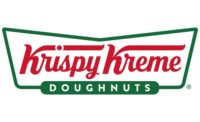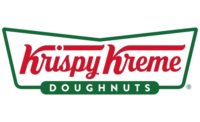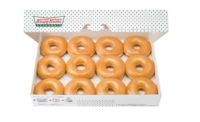![]()
Krispy Kreme Shares Continue to Tumble
The Security and Exchange Commission are investigating buy-backs of franchises by Krispy Kreme Doughnuts and the way it does not amortize, or reduce the value of those assets over time as other companies do.
According to published reports, both investors and accounting experts are also exploring Krispy Kreme’s repurchase of franchises from executives, board members and others affiliated with the company for what some describe has premium prices.
By not depreciating these assets, it does not have to take a non-cash charge against earnings. If the Winston-Salem, N.C.-based company were to amortize its buy-backs of franchises, it could lower its reported profits.
The investigation into Krispy Kreme’s accounting practices is just the latest in a number of setbacks that have caused the once high-flying stock to sink. In fact, in mid-August, the company’s shares were trading under $14 — just more than 70% off its 52-week high of more than $49 a share.
Over the last six months, the beleaguered company has experienced an onslaught of bad news. In May, the company warned of lower 2004 earnings, prompting the beginning of the stock slide and sparking several shareholder lawsuits. At that time, the company blamed softness in supermarket sales growth on low-carbohydrate diets. The company said it even is working on developing a low-carb donut, which it may introduce by the end of this year.
Some analysts note that Krispy Kreme simply is struggling in the highly competitive retail sector, where its donuts are delivered daily and stored in boxes or cases. Moreover, unlike in its retail bakeries, the donuts are not hot and as fresh as they are when they come right off the line.
In a May conference call with analysts, Scott Livengood, chief executive officer, defended Krispy Kreme’s purchases of franchises, stating that they were in accordance with generally accepted accounting principals.
The company had noted that it plans to continue buying back franchises and hopes to eventually have between 750 and 1,000 company-owned stores in North America.
In other news, Krispy Kreme may start advertising to boost its brand image. In the past, the company supported its new coffee line with radio spots and direct mail in some markets. Occasionally, it also used outdoor advertising, sponsored radio programming and carried out other promotions with other companies. However, the company prided itself on the amount of free publicity it received from local stations, cable business news stations, celebrities, sit-coms and even movies. Often Krispy Kreme just needed to send a few boxes of donuts to a newspaper or TV station, and the reporters would rush over to cover the store opening.
The new advertising, which could include TV commercials, is an evolutionary step, the company said. The company and its franchisees would pay for development of the marketing program, and then Krispy Kreme or the franchises would pay for airing the commercials in local markets.
At this time, Krispy Kreme reportedly has no plans for the national media because its marketing approach to mature markets, such as in the Southeast, would be much different than its message in newer markets like Billings, Mont.
Dunkin’ Donuts May
Build Commissary
Dunkin’ Donuts along with franchisees in central Massachusetts are proposing to build a 21,000-sq.-ft. plant that would serve about 50 stores.
According to published reports, the commissary would fry donuts for stores and deliver them daily. The new bakery would employ between 35 and 50 workers.
FDA to ‘Demystify’
Carb Label Claims
The Food & Drug Administration plans to clarify and define just what “low carb” and “net carbs” mean this fall when it issues proposed rules on the topic.
According to the Snack Food Association, acting FDA commissioner Dr. Lester Crawford noted that the FDA plans to “demystify” carbohydrate labeling claims and create a uniform standard for food companies to follow.
“Consumers are confused when they see the terms ‘low carb’ and ‘net carb,’ so FDA will be publishing a proposed rule and providing guidance regarding claims on the carbohydrate content of food,” Crawford told attendees at a “Newsmaker Luncheon” at the National Press Club in Washington, D.C., in August.
Innovator Passes Away
Douglas Hansen, 30-year member of the American Society of Baking and creator of numerous bakery inventions, passed away in July as a result of an accident while working in his plant.
A World War II veteran, Hanson developed a number of bakery systems, including improved bread slicers, pan cleaners, dust-collection machines and dough imprinting. The U.S. Patent and Trademark office lists 17 patents to his name, but his son Gary believes his father had as many as four times that number.
Hanson’s wife Margery preceded him in death. He is survived by his three sons, two daughters and several grandchildren.





